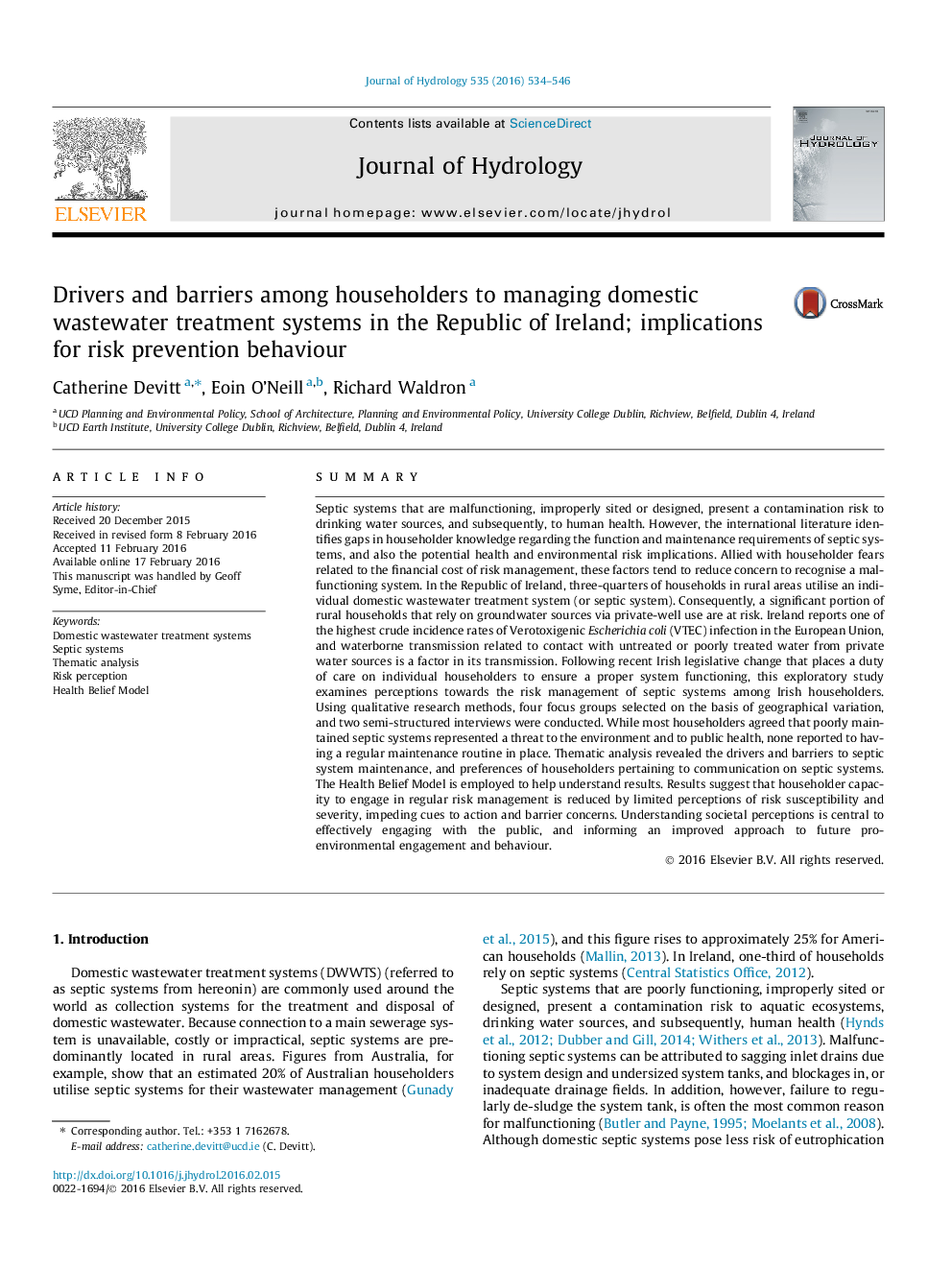| کد مقاله | کد نشریه | سال انتشار | مقاله انگلیسی | نسخه تمام متن |
|---|---|---|---|---|
| 6410155 | 1629917 | 2016 | 13 صفحه PDF | دانلود رایگان |
- Three-quarters of rural households in Ireland utilise individual septic systems.
- This study reports householder perceptions towards managing their septic system.
- Capacity to manage septic systems is limited by perceptions of risk susceptability and severity.
- The Health Belief Model is useful for understanding risk management behaviour.
SummarySeptic systems that are malfunctioning, improperly sited or designed, present a contamination risk to drinking water sources, and subsequently, to human health. However, the international literature identifies gaps in householder knowledge regarding the function and maintenance requirements of septic systems, and also the potential health and environmental risk implications. Allied with householder fears related to the financial cost of risk management, these factors tend to reduce concern to recognise a malfunctioning system. In the Republic of Ireland, three-quarters of households in rural areas utilise an individual domestic wastewater treatment system (or septic system). Consequently, a significant portion of rural households that rely on groundwater sources via private-well use are at risk. Ireland reports one of the highest crude incidence rates of Verotoxigenic Escherichia coli (VTEC) infection in the European Union, and waterborne transmission related to contact with untreated or poorly treated water from private water sources is a factor in its transmission. Following recent Irish legislative change that places a duty of care on individual householders to ensure a proper system functioning, this exploratory study examines perceptions towards the risk management of septic systems among Irish householders. Using qualitative research methods, four focus groups selected on the basis of geographical variation, and two semi-structured interviews were conducted. While most householders agreed that poorly maintained septic systems represented a threat to the environment and to public health, none reported to having a regular maintenance routine in place. Thematic analysis revealed the drivers and barriers to septic system maintenance, and preferences of householders pertaining to communication on septic systems. The Health Belief Model is employed to help understand results. Results suggest that householder capacity to engage in regular risk management is reduced by limited perceptions of risk susceptibility and severity, impeding cues to action and barrier concerns. Understanding societal perceptions is central to effectively engaging with the public, and informing an improved approach to future pro-environmental engagement and behaviour.
Journal: Journal of Hydrology - Volume 535, April 2016, Pages 534-546
